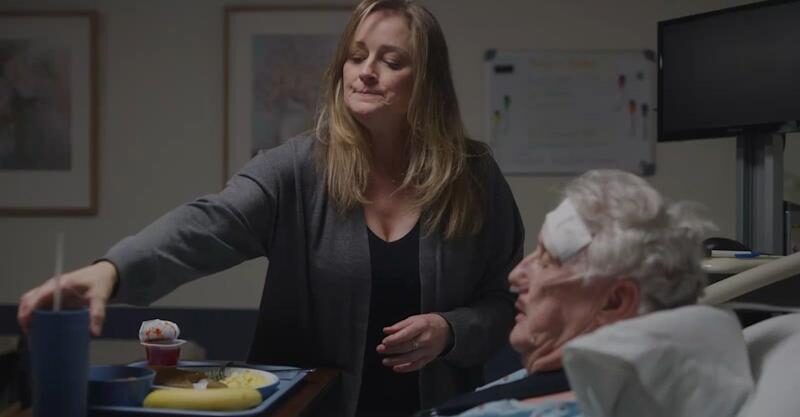Relative Control (Yachin, 2025)
If one grows up watching a lot of television or going to the movies, one develops positive associations with any number of actors or actresses who participated in beloved projects.
Teri Polo is probably best known for Meet the Parents and Meet the Fockers, but say her name and I will always think first of Rebecca Wells in Sports Night and then of Helen Santos in The West Wing. Equally adept in sitcom or melodramas, Polo always seemed one breakout role away from the A-list. It’s the nature of Hollywood, though, that there are fewer breakout roles available than there are actresses worthy of them. Polo has over a hundred credits on her filmography, but when I saw the trailer for Relative Control, I could not remember the last thing I had seen her in.
She doesn’t disappoint in the film, but neither is it the breakout role that her longtime fans might have been hoping with. She plays Sara, a consultant with aged parents, a dependent adult son, and a competent support staff. Given the film’s title and the way those who care for speak about her, Sara is meant to be a bit of a control freak. And since I am roughly the same age as Sara, I appreciated the film’s depiction of the middle-aged squeeze. That squeeze is typically more painful for women than men because of the cultural stereotypes that socialize them to be the expected nurturers and caretakers. One of the best parts of Polo’s performance is that she allows us to see some of Sara’s justifiable frustrations and resentments without making her come across as a bitter person.
Unfortunately, the writing never gives her enough to work with. Had Relative Control been a four or five episode arc of a television show, the domestic and work subplots might have not felt quite so disjointed. The work subplot simply lacks drama or interest in its own right. It is there to complicate Sara’s attempts to care for her ailing father. Sara has a male assistant who she relies on more than she realizes but lacks the time to properly mentor or appreciate. In a television series this relationship might have been developed more, with the instances in which he asks for more responsibility not being quite so pointed in their foreshadowing. A potential romantic relationship appears out of nowhere and seems less integral to the plot than it should be.
The listless nature of the subplots also means that when the third act inevitably narrows its focus to Sara’s relationship with her father, the emotions feel more generic than poignant. We know how Sara feels about her father based on the way she responds to him, but since our entry point to the story is near the end of that relationship our we are left to infer a lot more than we actually see.
While I enjoyed seeing Polo in a dramatic role, I can’t recommend Relative Control to anyone except for her staunchest fans.

